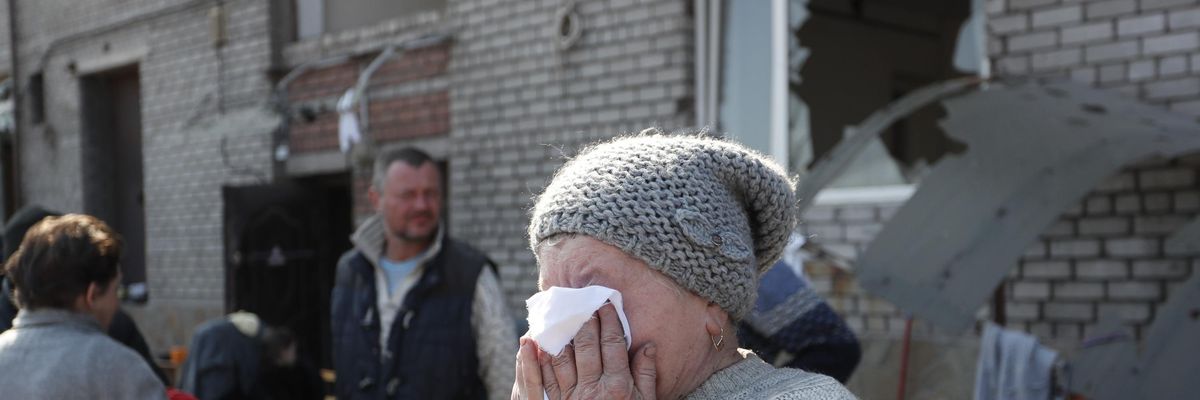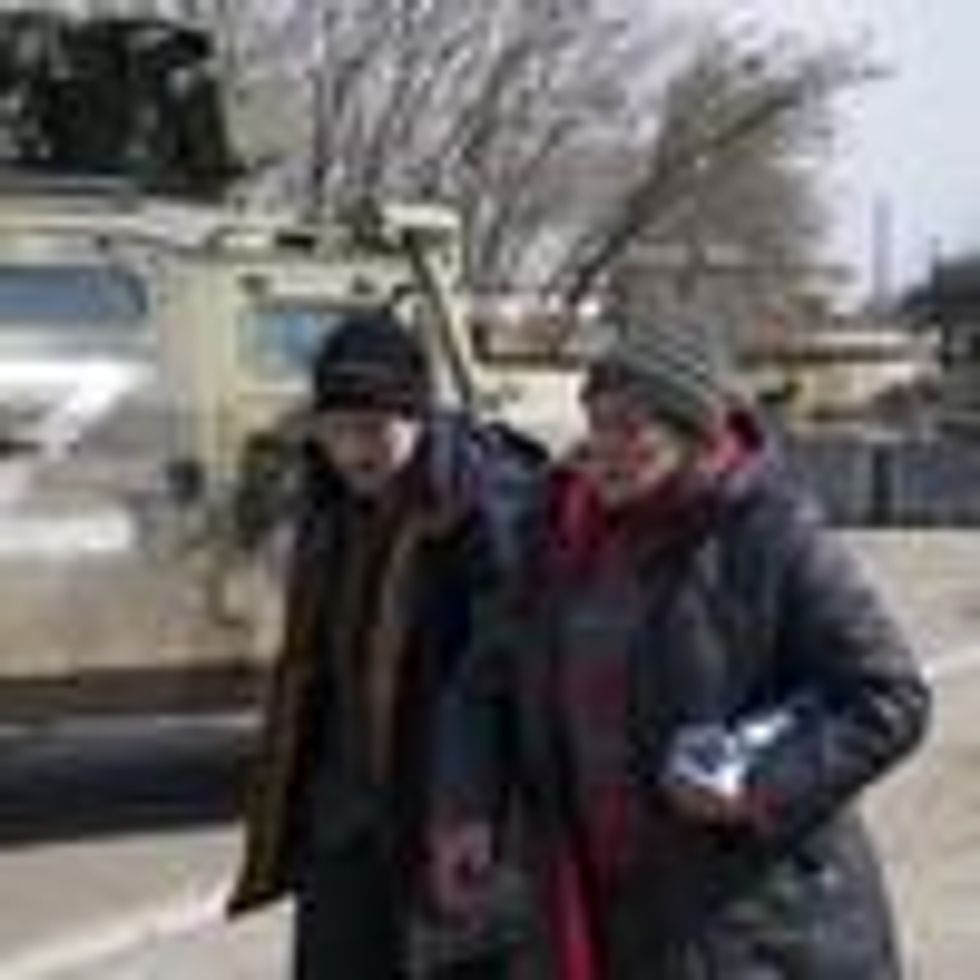Ukrainian President Volodymyr Zelenskyy claimed Monday that tens of thousands have been killed in Mariupol as Russian forces bear down on the city, prompting warnings from Ukrainian soldiers that the "last battle" for control of the strategic port is imminent.
In a speech to South Korea's parliament, Zelenskyy characterized the humanitarian situation in Mariupol as "the worst" of the war and reiterated his call for more weaponry as ongoing diplomatic talks between Russian and Ukrainian delegations fail to produce a peace deal.
"Even despite this, the Russians are not stopping their offensive."
"It was a city of half a million. Mariupol is destroyed. There are tens of thousands of dead," Zelenskyy said, describing a scale of devastation that far outstrips official estimates of civilian casualties. "But even despite this, the Russians are not stopping their offensive."
Shortly after Zelenskyy delivered his address, Ukrainian forces on the ground in Mariupol warned that Monday "will probably be the last battle" for the city as "ammunition is running out." Reutersreported that its journalists on the ground in Ukraine "saw several Russian tanks heading down a highway in the direction" of Mariupol on Sunday.
"It's death for some of us, and captivity for the rest," the 36th marine brigade of the Ukrainian armed forces wrote in a Facebook post on Monday. "The enemy gradually pushed us back [and] surrounded us with fire, and is now trying to destroy us."
The brigade added that wounded soldiers make up "almost half" of the force defending Mariupol.
"Those whose limbs are not torn off," it said, "return to battle."
Related Content
Ukraine Rejects Russia's Demand to Surrender Mariupol as Crisis Worsens
Jake Johnson
Last week, Mariupol Mayor Vadim Boychenko said that around 90% of the city's infrastructure has been destroyed by Russian forces.
On Monday afternoon, Boychenko told the Associated Press in a phone interview that more than 10,000 civilians have been killed during Russia's assault on Mariupol, where he said corpses are "carpeted through the streets."
According to AP, Boychenko also asserted that "Russian forces brought mobile cremation equipment to the city to dispose of the bodies, and he accused Russian forces of refusing to allow humanitarian convoys into the city in an attempt to conceal the carnage."
In his speech to South Korean lawmakers earlier Monday, Zelenskyy said Russian attacks have demolished "938 educational facilities" and "almost 300 hospitals" throughout Ukraine.
"Not one city, not even two or three," the president continued. "These are tens of cities that the Russian military simply tried to wipe off the face of the earth."
Analysts say the complete seizure of Mariupol would be significant for Russian forces given the city's positioning as a potential "land bridge" between two separatist regions in eastern Ukraine and Crimea, which Russia annexed in 2014.
According to human rights groups and first-hand testimony from civilians who managed to escape Mariupol during tenuous ceasefires, Russia's effort to overtake the city has had catastrophic humanitarian consequences.
Human Rights Watch (HRW) noted in a report published last month that escaped residents it interviewed "described periods of sustained and often intensifying attacks with explosive weapons, from the beginning of fighting on February 24 to the moment they fled the city."
"Witnesses described attacks that killed and injured their neighbors as they took shelter in their homes, prepared food, and fetched water, throwing them from buildings and piercing them with fragments," HRW added. "The attacks also destroyed and damaged homes, businesses, and critical civilian infrastructure, such as hospitals and schools, collapsing and burning buildings in numerous parts of the city. The descriptions of the attacks and their effects are consistent with the use of explosive weapons with wide-area effects."
Agnes Callamard, secretary-general of Amnesty International, said late last month that "the siege of Mariupol, the denial of humanitarian evacuation and humanitarian escape for the population, and the targeting of civilians... amounts to war crimes."
"That is the reality of Ukraine right now," Callamard added.
This story has been updated to include new comments from Mariupol Mayor Vadim Boychenko.


